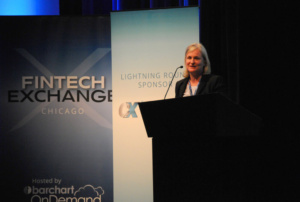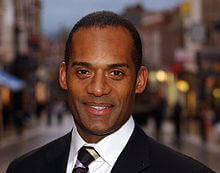Why the fad? Regtech was the buzzword of 2017, but post ESMA rulings it is more relevant today
The retail FX sector should not drop the word regtech just because of the ESMA and MiFID II rulings having already been implemented. “As the Chair of the All Party Parliamentary Group on Financial Technology I was so pleased to hear the FCA explicitly highlight RegTech throughout the whole of last year as a sector where they are committed to playing an active role in fostering innovation” Adam Afriyie, Conservative MP tells FinanceFeeds

In many legacy business sectors, all-consuming phases and trends barely exist, however in entrepreneurial, modern and leading edge business, they are omnipresent.
Retail electronic trading is not only a relatively young phenomenon, but it is one that developed and matured very quickly via a combination of enthusiasm and committed innovation that drives every executive in the sector across the world to continue to strive for progress, and increasingly empowered and technologically aware traders whose desktop PC or mobile device has never been closer to resembling the professional trading desks of Chicago, New York and London.
The resultant dynamism has created an environment in which reactions to certain changes, planned or unplanned, have created noticeable switches toward concentrating on solutions to them, and thus an environment laced with buzzwords and intrinsic focus on one particular aspect at one particular time.
Last year, the absolute word of the moment was ‘regtech’, an abbreviation for regulatory technology, largely spurred by the advent of the newly implemented MiFID II market infrastructure regulations set forth by the European Securities and Markets Authority (ESMA).
During the course of 2017, several specialist regulatory technology companies that have tremendous experience in the retail FX industry rose to prominence, four particular examples being Cyprus-based Point Nine, Israeli boutique technology provider Cappitech, Australia’s TRAction FinTech, and the division of law firm MAP S Platis that was founded to perform regulatory reporting and consultancy, MAP Fintech.
The lack of information provided to compliance officers by the European competent authorities created more than a tad of uncertainty and a fear among many retail FX firms that they would not be armed with the required procedural understanding when the calendar turned another year, resulting in potential fines or regulatory censuring, hence the word ‘regtech’ was often heard from London to Limassol, and many seminars took place to provide information.
In January this year, the new MiFID II rulings were implemented, and the word ‘regtech’ became conspicuous by its immediate absence.
This desertion of an all-encompassing dynamic by the retail sector represents a very important methodology that exists, that being a rush toward the implementation date of a certain ruling or requirement, and then consignment to the history books, when in reality the retail sector could do well by emulating the institutional and bank technology business by maintaining such consultancy on an ongoing basis.
Throughout the 1990s, companies such as Fujitsu-Siemens, Spectra, Capita IT Services, Accenture and PA Consulting provided ongoing management consultancy on an outsourced basis to the trading infrastructure R&D and implementation divisions of banks, proprietary trading firms and executing venues, with a substantial part of their remit being to ensure that such companies comply with infrastructural requirements, build, design and implement their solutions according to globally accepted architecture rulings, the result being longevity and no nasty surprises.
Many of the consultants based on site at such institutions were solutions architects, and the demand was so high that by 2005 it was not uncommon for a lead solution architect on a contract to one of the aforementioned management consultancy firms and based on site at a bank’s systems division would charge £1800 per day and be on repeatedly renewed contracts.
Indeed, this type of resource is out of reach to many small to medium sized brokerages, however, that is exactly the function of the regtech specialists that serve the industry – to provide dedicated solutions for regulatory reporting and to ensure compliance departments remain technologically aligned with the systems used by regulators for LEI generation, reporting and publication, (these are just a few examples) whilst keeping the cost down.
This week, Head of Regulatory Reporting at Point Nine, Andrea Peratitis, has left the company and moved to Cypriot FX brokerage Lead Capital Markets as Head of Compliance and AML officer.
Ms Peratitis is an extremely astute regulatory and compliance professional, and has presented alongside some of the institutional and exchange technology senior executives from London, Frankfurt and Chicago on regulatory matters. Her leaving one of the specialists in regtech and reporting therefore is another indicator in this direction.
In January last year, CME Group’s Director of Global Repository Services Igor Kaplun picked up on this subject during a seminar hosted by Point Nine, going into detail on how EMIR will require new methodologies with regard to margin and clearing, and what the rewrite will entail.

Mr. Kaplun is based in Chicago at CME Group’s head office, and has ten years of experience in post trade services, trade reporting and OTC as well as futures markets. As business line head for CME Group’s North American Trade Repositories and global commercial business, Mr. Kaplun is well versed in complete overhauls of infrastructure regulations and has been debating this in Cyprus in order to bring to light matters that should be addressed when the rewrite of the EMIR regulations is instigated.
The interbank sector has had its say in Cyprus, with Dr Hagen Tiller of Commerzbank’s legal department, who is a specialist in the company’s Markets and Distributions division, having explained in full to the officials, industry participants and regulators exactly what should be reported under MiFIR which is the new market infrastructure regulation that applies Europe-wide.
Dr Tiller advised firms in Cyprus how they can begin preparing for the MiFIR rulings and what the practical implications are. Interestingly, the panel discussed the legal agreements that need to be in place with trading venues, including the terms and conditions of exchanges, multilateral trading facilities and bilateral trading agreements, as well as the all important matter of custody of client funds and safekeeping of financial instruments, as well as how European regulators will view algorithmic trading and HFT.
Access to this type of information for FX firms is vital, and without the regulatory technology specialists, it would remain the preserve of the banks and institutions, and retail FX companies would not be able to elevate themselves toward emulating the institutions, which is really the only way forward.
With regard to having to adopt more infrastructure-integral regulatory systems, Point Nine co-founder and Chief Technology Officer Pavlos Christoforou, who established the firm in Cyprus alongside Yannis Matsis in 2002, addressed several officials with regard to ‘RegTech on the cloud,’ and how the hosting of regulatory technology in an infrastructure-free environment poses challenges and opportunities.
“The regulated landscape is continually shifting. This presents a challenge to traditional enterprise architectures. Agile, cloud based solutions are better suited to the task” said Mr. Christoforou.
This is remeniscent of the use of VMWare in the late early Millennial years to do exactly that within the institutional sector, often implemented by the Fujitsu-Siemens, Accenture and Capita-sourced solutions architects.
Speaking here in London to Conservative Party senior government minister Adam Afriyie MP, who is also President of Conservative Technology Forum and is a senior Member of Parliament within the incumbent British government, the British perspective is vital.
Mr Afriyie MP has also served as a member of the Science and Technology select committee from 2005 until its abolition in July 2007, has been the President of the Conservative Technology Forum and Chair of the Parliamentary Office of Science and Technology since 2010.
Mr. Afriyie is Chairman of Connect Support Services, an IT support company he set up in 1993. He owned two-thirds of DeHavilland, a political monitoring company, which was sold to publishers Emap in 2005 for £18 million. He was also a regional finalist in the 2003 Ernst and Young Entrepreneur of the year awards. He was a Governor of the Museum of London, a trustee of the Museum in Docklands and a director of Policy Exchange, a centre-right policy body.

Additionally, Mr Afriyie is a stakeholder of Axonn Media, a content marketing business which produces content for clients. The company incorporates brands such as Content Plus, NewsReach, DirectNews and ReelContent. Axonn turned over £9.4m in 2011 and made a pre-tax profit of £1.3m.
He is also the largest shareholder of the firm and he and his fellow directors split dividends of £2.2m in 2010 and 2011 and shared directors’ pay of £3.6m over the last five years.
Here in London, Mr Afriyie explained to FinanceFeeds ““London’s status as the global centre for Financial Technology did not come about by accident but rather due to the positive and supportive actions of British legislators, regulators and financial firms.”
That’s why as the Chair of the All Party Parliamentary Group on Financial Technology I was so pleased to hear the FCA explicitly highlight RegTech throughout the whole of last year as a sector where they are committed to playing an active role in fostering innovation” – Adam Afriyie, Conservative MP
“More can be done to stimulate advances in the RegTech sector. The FCA’s Call for Input from July last year highlighted the pro-active, but limited, role that they can support the sector, in particular aiding the industry in defining standards and guidance. However, the FCA are also receptive to the role that Government cannot play, such as building one-size fits all regulatory solutions to an area with a great diversity in complex legacy infrastructure.”
“It is reassuring that we have a Government that recognises technology is the key to our continued economic vibrancy and that seeks to nurture and adapt to disruptive new technologies through the Industrial Strategy rather than try and stifle them” he concluded.
In conclusion, the retail FX industry must emulate the banks and institutional entities in the major financial centers of the world. This is not only how the regulators and rulemakers want it, but also the ever more demanding clients who look for longevity and sustainability.
Main Image: Boston’s FinTech Sandbox is aiming for the innovators of Chicago. Copyright FinanceFeeds









